Simon Kinberg about X-MEN: DAYS OF FUTURE PAST
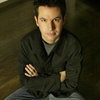
American screen writer and producer Simon Kinberg told about the extras from ‘X-MEN: DAYS OF FUTURE PAST’ included on the Blu-ray, the Rogue Cut itself, the production of the film, and much more…
Reporter: First of all, I have to commend you because it feels like you’ve been out there promoting stuff non-stop between X-Men, The Fantastic Four, and Star Wars, and the entire time you remain so happy and excited to keep talking about these exciting properties.
SIMON KINBERG: Well I appreciate that but I am talking about X-Men, Fantastic Four, and Star Wars (laughs). If you had told me when I was a kid that I would get to actually talk in any position of authority about them I would have asked you where I sign up and how much I have to pay.
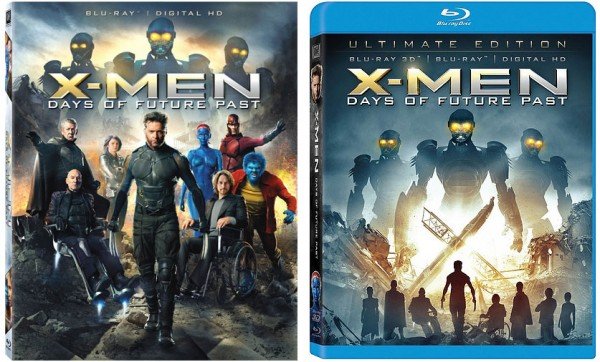
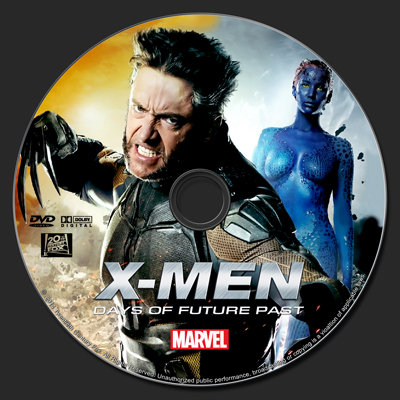
Reporter: Well you are in a very enviable position. With regards to the Blu-ray release of X-Men: Days of Future Past, did you know from the beginning that Fox was planning two separate releases with the Rogue Cut arriving at a later date?
SIMON KINBERG: No, we weren’t sure how we were gonna release the Rogue Cut. But there was so much to do with the theatrical cut and so much material we wanted to put on that first wave that I guess it made sense ot do it as two separate releases, and also doing the Rogue Cut would take more time than we really have for this first release.
Reporter: I heard that Fox is spending money to finish some of the deleted scenes to make the Rogue Cut of the movie complete. Are there any plans to release that cut in theaters?
SIMON KINBERG: Not that I know of. As far as I know it’s a home entertainment release.
Reporter: On this Blu-ray release that’s coming out now, what are some of the extras that you’re excited for fans to see? Did you have a pretty extensive documentary crew on set during production?
SIMON KINBERG: Yeah we did, I mean that’s the stuff that I’m almost most excited to have. Both as a filmmaker and as a fan I love the behind-the-scenes stuff, I like it even more than deleted scenes frankly. Especially when you’re happy with the movie and you’re proud of it, those deleted scenes give you also a sense of the making of the film and the process through which you end up with the final product, but actually seeing the people on the other side of the camera—not that any of us are as photogenic as our actors, but nevertheless to actually see the process as someone that grew up loving movies and being fascinated by how you make a movie, we didn’t really have that when we were kids. I mean there were some behind-the-scenes documentaries, but we didn’t have it in the same way, so that’s the stuff that I think is the coolest and there’s a lot of that.
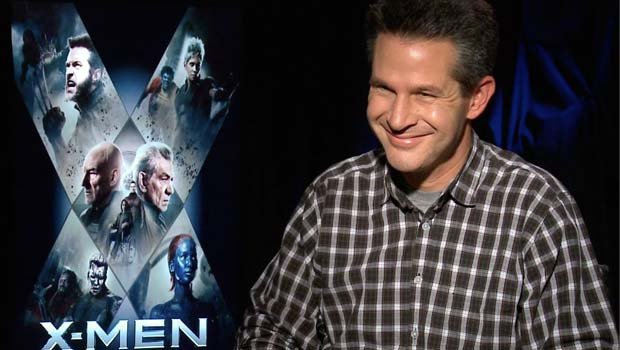
Reporter: It’s almost like a free film school, I also love the behind-the-scenes stuff more than deleted scenes.
SIMON KINBERG: Yeah, and knowing obviously that this was a movie that fans were gonna be really passionate about, it’s a title that all of us have waited a long time to make, we did want to document the process. So we had a lot of people filming and recording as we went.
Reporter: Looking back on the film now with a bit of perspective, is there one sequence or scene you wish you could go back and tweak or do differently?
SIMON KINBERG: Um, it’s a good question. It’s funny, I hadn’t seen the movie in a while, I really hadn’t seen it since the release of the film until about a week ago when it came out on iTunes, I downloaded it on iTunes myself—I guess I can expense it (laughs). I hadn’t seen it in a while, and I’m really proud of the movie. I think the thing I like the most about it is it’s a very emotional, character-driven film and rewatching it, that really all came back as strongly for me as ever. I’m trying to think of a scene or a sequence that I would’ve done differently. I wish we had more time for the mutants with Kitty in the future. Some of those characters are great characters from the books, and we shot a little more material than we actually used, but to spend a little more time with Bishop and Blink and Warpath and Sunspot and Colossus—they’re just cool characters, and that’s the thing when I watch the film, in some ways just as a fan of the comics I find myself wanting more with them.
Reporter: Were there any big surprises on your end with regards to how audiences responded to the film? I know Quicksilver was kind of the butt of a joke leading up to the release when people were just looking at out-of-context promo images and stuff, but then he ends up stealing the movie. Were you always pretty confident audiences would feel differently about the character once they saw him in the context of the film?
SIMON KINBERG: Well I was confident from when we showed it to audiences well before it was released. We showed it to friends and family at a few screenings, and I could tell from just those initial screenings of the response in the room, in the moment, to that Quicksilver sequence that it was special. Certainly you never know until a movie comes out if people are gonna embrace it or reject it no matter how big the title—sometimes that’s an even bigger challenge—so I was as nervous as I’ve ever been with that movie coming out. But the critical response, the fan response, the mainstream response, I’m very happy with the way people embraced the film. For the Quicksilver sequence, from the first time that Bryan really conceived it and described it, I thought it had the chance to be something really special and memorable.
The sequence that it most reminded me of in the conceptual stages was the opening sequence of X2 with Nightcrawler, which to me is still one of the great action sequences certainly in superhero movies but maybe any movie, so we were responding to that. One of the tricky things about making these movies is there’s so many visual effects that you don’t really know what you have until very late in the process, because you’re watching a lot of people walking around in funny suits and blue screen/green screen backgrounds, so there was a lot of discovery in post on the movie where it all comes together as it becomes real, in front of you, when you’re not watching just a white backdrop. Suddenly you have the White House in the background of frame and you have robots flying into the sky where before you just had little tracking shots. All of that is a discovery as you go.
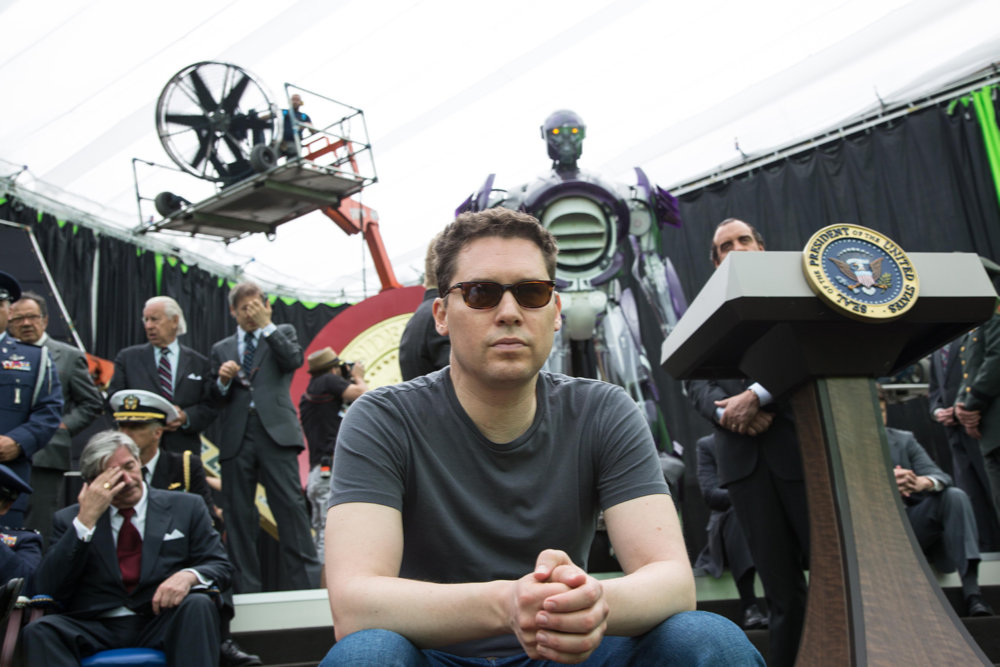
Reporter: With Days of Future Past being far and away the highest grossing X-Men movie yet, is Fox giving you a bigger sandbox to play in with Apocalypse in terms of budget? You’ve described the film as an “extinction level event” so I imagine there are some pretty big set pieces.
SIMON KINBERG: There are some very big set pieces. I don’t know what the budget’s gonna be because we’re still a ways away from budgeting the film, but I can say that Fox has a lot of creative confidence in the team that made Days of Future Past—myself, Bryan, Lauren Shuler Donner, Hutch Parker. All of those people are coming back so in terms of a sandbox they’re definitely giving us a lot of room to play creatively and take chances the way that we took some chances on Days of Future Past, and do some radical things just as I think we did some radical things in Days of Future Past.
Reporter: These films have always been ensembles, but First Class was really Erik’s story where as DOFP was Charles’ story, so is there a similar focus on a certain character in Apocalypse?
SIMON KINBERG: Um, I don’t wanna go into too much detail as we’re still working on it, but I will say that it is definitely the close of a trilogy for those First Class characters, which isn’t to say we won’t see them in future movies, hopefully we will, but it’s a completion of an arc for them. I think that the friendship between Erik and Charles, which has always been so integral to the franchise, is something we’re continuing to explore and hopefully deepen with Apocalypse. And the relationship between Beast and Mystique is a really interesting one that we didn’t have a lot of time to explore in Days of Future Past, so we’ll have an opportunity to do more of that in Apocalypse. Part of what’s really interesting about Mystique’s character is that she is, in some ways, the child of both Erik and Charles. She grew up with Charles and then she sort of became a woman with Erik, so her being the cross-pollination, if you will, of those two philosophies and those two men is something we can explore in the movie too.
Reporter: With Apocalypse being set in the 80s I have to ask, what’s it like to be able to put Storm in a mohawk?
SIMON KINBERG: (Laughs) I don’t wanna answer anything about specific characters, but I will say we’re having a lot of fun with the idea of the 80s. It’s a decade that Bryan and I both grew up in and so the music, the style, the aesthetic, the legacy of 80s movies is something we’re really having fun with.
Reporter: Is it relaxing to not have to deal with time travel now?
SIMON KINBERG: Oh my God yes (laughs). I hope I never have to do a time travel movie for the rest of my life. The truth is, these movies are complicated because like you say they are ensemble movies so you have a lot of characters to balance and a lot of story to tell, but there is nothing as complicated as doing a time travel movie where you’re actually showing both sides of the time travel. I think if I was ever to do a time travel movie again, and I hope I don’t, but if I were I would do it like Back to the Future or Terminator where you sort of start in one place and really spend 90% or 95% of the movie in one era. The hop-scotching between the two, past and future, was what was so complicated about telling this story.
And then also obviously trying to fit into not necessarily the timeline of the previous movies—because obviously we changed things about that timeline—but certainly the audience’s expectations about those characters. So you’re telling a story that takes place, in some ways, in three time periods because you have the two time periods inside the film and then you have the time period of the original movies that much of the audience brings to the movie. Even though we’re twisting that a little bit, you still have to be true to it and you have to acknowledge the audience’s expectation. Even if you’re contradicting it, you still have to be aware of it as you’re making the movie. So it was a lot to balance and I’m happy the way it turned out but there’s a lot more grey in my hair.
Reporter: Well I think you guys pulled it off quite well. Are there any other trims or scenes left over that won’t be included on these two home video releases? Because I know you guys had to do a little bit of additional photography to clean up some of the time travel trickiness.
SIMON KINBERG: Yeah, I think there’s always gonna be little moments that don’t make it onto any version of the DVD, but for the most part anything that’s of any significance is gonna end up on both of these releases. People will see all of the different alleys we went down to end up back on the main road of the movie. There’s a filmmaker I like a lot, Tony Gilroy, who I read in an article talks about how you have to go down some of those blind alleys to find your way back onto the main path. Usually you make those choices in the script phase and experiment and then find your way back; we had the luxury of being able to experiment a bit when we were shooting and try some things, much of which ended up in the movie, some of which didn’t end up in the initial movie.
So these deleted scenes, I think more than certainly other films I’ve worked on, give you a picture of the process of making the movie. Why we made certain decisions, and then how certain decisions rippled into other decisions in the film. The Rogue sequence is the most significant because she’s such a big character and it was such a huge chunk of the movie that was pulled out, but you’ll see in both releases there’s other scenes that would’ve changed character arcs and impacted relationships in significant ways.
Reporter: Obviously you’re very focused on X-Men: Apocalypse at the moment and there’s no such thing as a sure thing, but the hope is that there are many more X-Men movies to come. I know you guys started fleshing out Apocalypse during production on X-Men: Days of Future Past, so as you’re working on Apocalypse are you starting to earmark things for future movies or talking about that follow-up at all? Is there a rough road map for where you want to go?
SIMON KINBERG: There’s definitely places that we would each and all like to explore in future movies and we think about it and talk about it, but really like you say the focus is fully on making this a great movie to justify future films. And this is such a cool story to tell, the Apocalypse story, in the same way that Days of Future Past was a classic story to tell; we are pretty fully occupied with telling the best version of this story. But I’m sure as we get deeper into it and when we’re on set—making these movies, the days are long days and you have a lot of down time because they’re so complicated logistically, technically, sometimes the setups can be an hour or two hours between shots, so you end up sitting on set talking about places you would go with the characters beyond this story. I’m sure inevitably that’s gonna happen, and some of it is between the filmmakers and some of it is with the actors too.
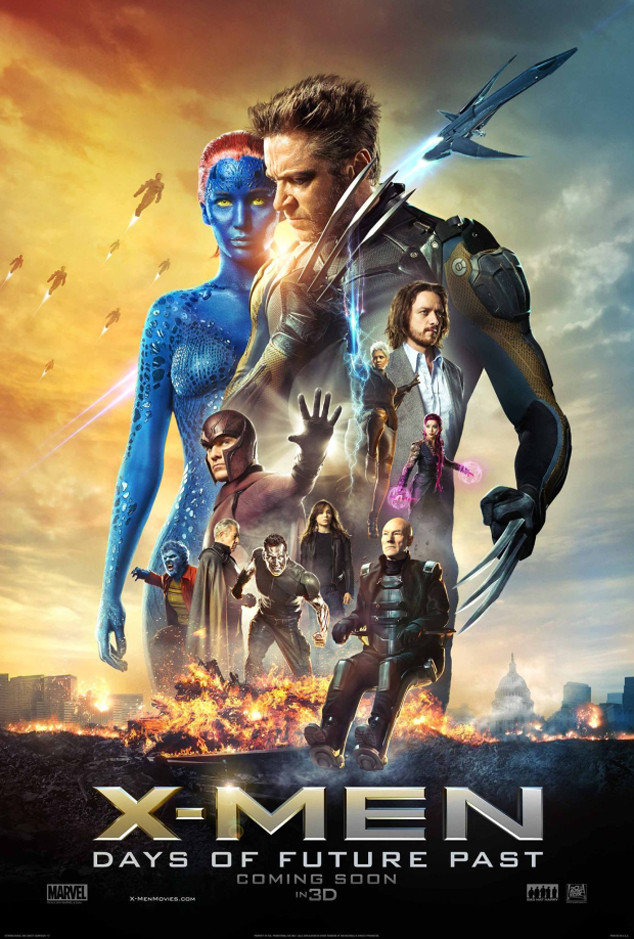
You get all those actors there and they have ideas about the characters. That’s one of the things that’s so great about working with an ensemble of such great actors. In multiple movies, they come to know the characters as well or better than the filmmakers, and so they have a very strong point of view about what their characters would and wouldn’t do and what they’d like to be able to do with their characters. And that’s really valuable, I mean there’s a lot of ideas and scenes in First Class and Days of Future Past, and I can even say now in Apocalypse, that come from conversations with the actors. As the writer or the producer or the director, you have a responsibility to tell the whole story and tell the story for all these characters, but each of these actors is just living that one character. They’re really living in their shoes and in their wigs and in their makeup and all that, and so sometimes they can have a more intimate, specific sense of the character. So just organically when you’re on set with all those people, you just start talking about what’s next.
Reporter: Do you know when and where you’re shooting Apocalypse yet?
SIMON KINBERG: We’re shooting it in spring of next year and I believe we’re shooting it in Montreal again.
Reporter: Well I do want to say congratulations on the second season pickup of Star Wars: Rebels.
SIMON KINBERG: Oh thanks, I’m really proud of that one. I saw it with my kids on Saturday, they did a premiere for it in Los Angeles, and I brought a 5-year-old and a 9-year-old, both boys—it was the first time they were seeing the pilot of the show, they had seen bits and pieces but they hadn’t seen the whole pilot—and they really loved it. And we showed the pilot to George Lucas, and George really liked it. I would say George Lucas’ approval was #1 and my kids’ approval was #2 for me (laughs).
Reporter: Did he have any involvement in the show at all or was this his first time being exposed to the material? Did he know what you guys were doing during production?
SIMON KINBERG: He knew what we were doing but he was seeing the pilot for the first time.
Reporter: During the writing and production of the first season did you know there would probably be a second season, or were you guys just crossing your fingers?
SIMON KINBERG: I think you’re always hoping and crossing your fingers (laughs). It was certainly not guaranteed by any stretch, and it was not known as we started the first season whether or not there would be a second. We hoped there would be and we were creating characters on a timeline that could accommodate future seasons and we all certainly wanted future seasons, but it wasn’t until the Disney network saw what we were doing and had a good sense that it might work that they pushed forward on a second season.
Reporter: Well I can’t wait to see it. Where are you in the writing process on your Star Wars feature film? Is there a draft yet?
KINBERG: That’s the one thing I cannot ever talk about (laughs). I would say it’s something I’m very excited about and I think that’s all I’m allowed to say on that.
Reporter: I had to ask.
SIMON KINBERG: (Laughs) Fair enough.
Interview materials: http://collider.com/
Comments